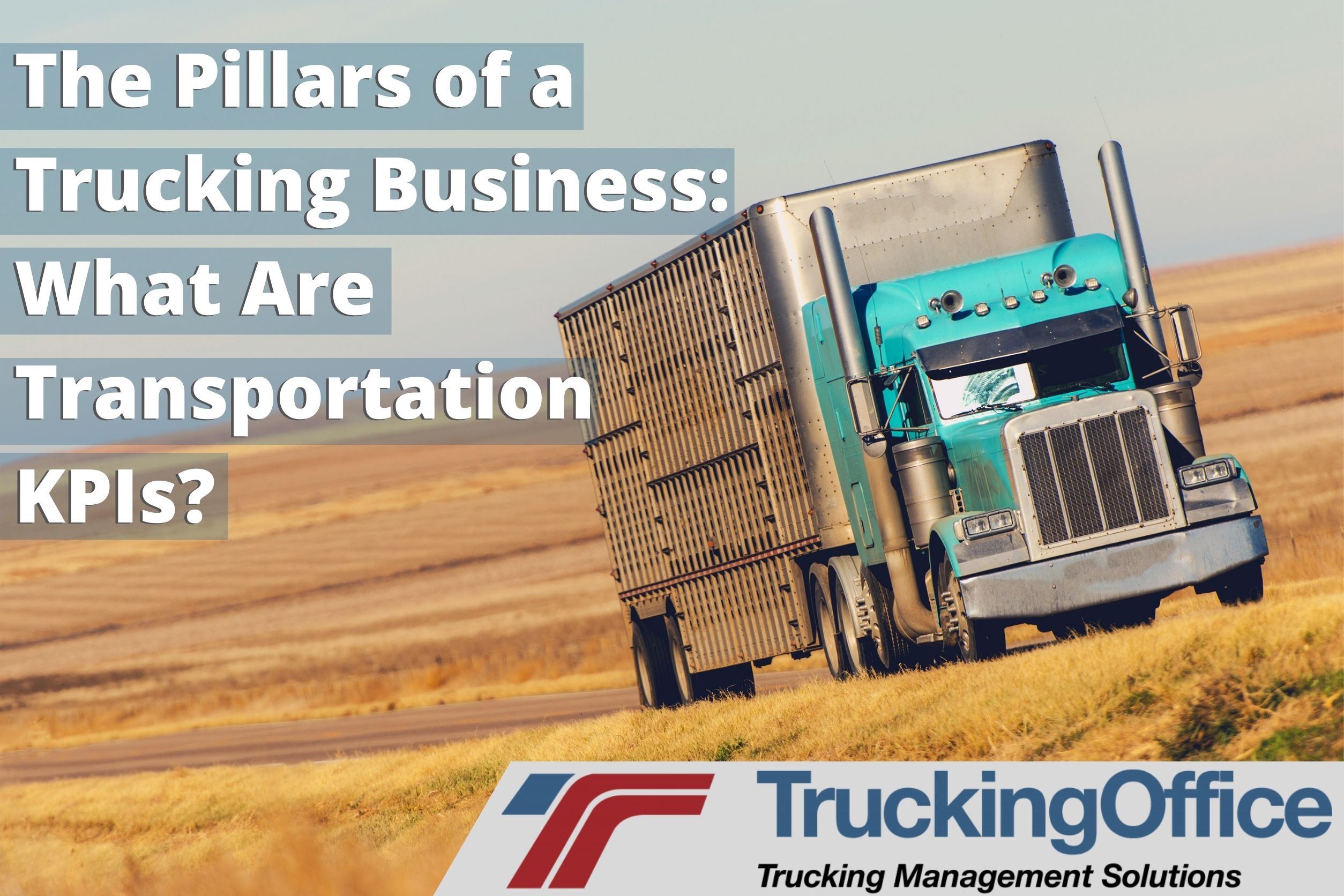Key performance indicators (KPIs) are the metrics used to measure a company’s efficiency. KPI data reveals the strengths or weaknesses of the business. With this information, business owners can make informed decisions about any changes needed.
What KPIs Should a Trucking Business Track?
In any business, there are hundreds of KPIs to measure. But for trucking companies, industry-specific metrics ensure a profitable operation. Here are some of the metrics that are essential in trucking:
Driver and dispatch KPIs:
- Miles driven
- Time spent at each stop (with driver updates)
- Profit per mile
- Departure and arrival times
- Revenue per mile
Logistics KPIs:
- Cost and revenue per trip
- Miles per gallon
- Load status
- Preventative maintenance compliance
Of course, this is not a comprehensive list of the metrics you could be tracking to improve your operation. Prioritizing the metrics based on your company’s goals is the best recourse. How you choose to use the data will determine the impact it has on your business.
Role of a TMS in KPI Tracking
The specific KPIs tracked depends on who wants the information. For instance, a trucking company needs different KPIs than a federal agency needs. Federal agencies require routine updates on the company to determine how trucking impacts the economy, so the data they request may be different from what you normally track.
Because of the diversity of data needed to run a profitable trucking business, a full service trucking management software (TMS) is a valuable tool. Think of a TMS as a Swiss army knife. The variety of tools contained in one neat little package is astonishing. You just need to know how to put them to work. Here’s how a trucking management system helps with KPI tracking:
- Fuel efficiency: This is one of the most crucial metrics in a trucking business. Tracking fuel use and mileage helps reduce overall freight costs.
- On-time pickup and delivery: A TMS allows you to know when shipments leave and arrive and lets recipients plan for loading or unloading.
- Automatic invoicing: Ensures that you get paid on time and that the invoice data is accurate.
- Vehicle maintenance: A TMS tracks vehicle maintenance and issues an alert when routine maintenance is due. This feature helps cut unexpected vehicle repairs or breakdowns on the road.
- Dispatching: With a TMS, you’ll always know where your vehicles and drivers are and can assign loads and plan routes more effectively.
In the world of shipping, today’s customers demand faster deliveries with the least amount of cost. To meet those demands, you need a reliable TMS provider.
TruckingOffice TMS Helps You Organize Your Entire Business
The best way to succeed in any business is to get organized and know where your money is going. If you’ve been relying on spreadsheets and calculators, it’s time to upgrade. With our TMS, all of your information is easy to access anytime. You’ll be able to generate reports, file IFTA quarterly reports, track fuel use and mileage, and more.
It’s time to take control of your business and start saving time and money with TruckingOffice. We want to help you succeed in the trucking business, and we know what you need to get there.
The best way for you to appreciate our TMS is to try it first-hand, so take a few minutes and sign up for this free trial. After you explore the many features of our system, you’ll be glad you took the time.







Hi , just started tracking costs, miles expenses and was hoping to generate quality feedback/info with information on hand , need help putting it all together. Looks like that’s what you do 🙂 thanks in advance